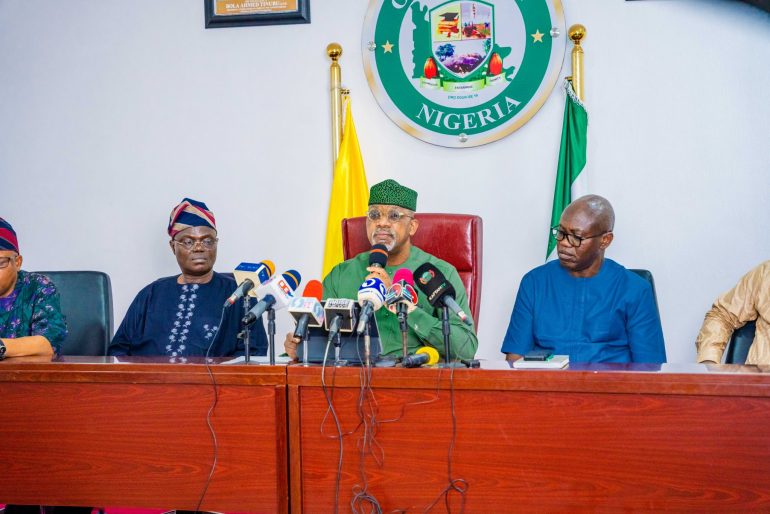The Ogun State governor, Dapo Abiodun, has announced a N5bn palliative in all sectors of the state economy to cushion the effects of the current socio-economic hardship being experienced by residents of the state.
These initiatives will be implemented in phases and will focus on the following sectors:
Education:
- We will provide a minimum of five exercise books to all 850,000 students in our public primary and secondary schools.
- A one-time education support grant of ₦10,000 will be given to, at least, 100,000 pupils in our public primary and secondary schools.
- We will provide an education grant of N50,000 each to the 27,600 indigent students in various tertiary institutions nationwide.
Health:
- We will offer insurance health cover to over 70,000 beneficiaries, including pregnant women, children, the elderly, market women, and members of the informal sector.
- Under the Ibidero Scheme, pregnant women will receive free prenatal care, an additional ₦5,000 per birth, and free postnatal care in the state hospitals and primary health care centres.
Agriculture:
- Food palliatives, including rice and other food items, will be provided to approximately 300,000 households across the state.
Civil Service:
- We will start clearing the backlog of inherited deductions in the civil service. For this purpose, ₦500 million will be allocated monthly towards outstanding deductions.
- It is important to note that we have been consistently paying a ₦10,000 transport allowance to all civil servants for the past 8 months.
These immediate interventions across all sectors of the state economy amount to approximately ₦5 billion.
In reaction, many have criticised Food palliatives, including rice and other food items suggesting that it’s better for Ogun State Government to focus on Food Security and Agriculture such as Land clearing, seeds distribution, establishment of farm tools and machinery centers, farming estates across local governments, distribution and subsidizing fertilizers, farmer’s loans and grants, development of dams for irrigation, rural electrification using renewable energy such as solar farms, security for farmers by recruiting more Amotekun personnels and creating more stations in agrarian communities.
